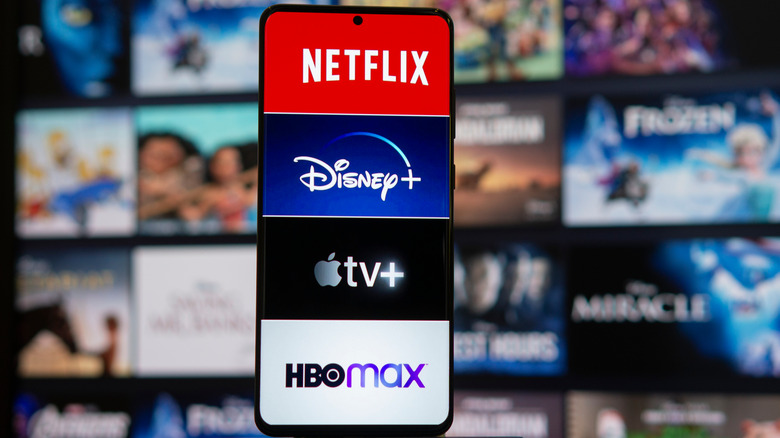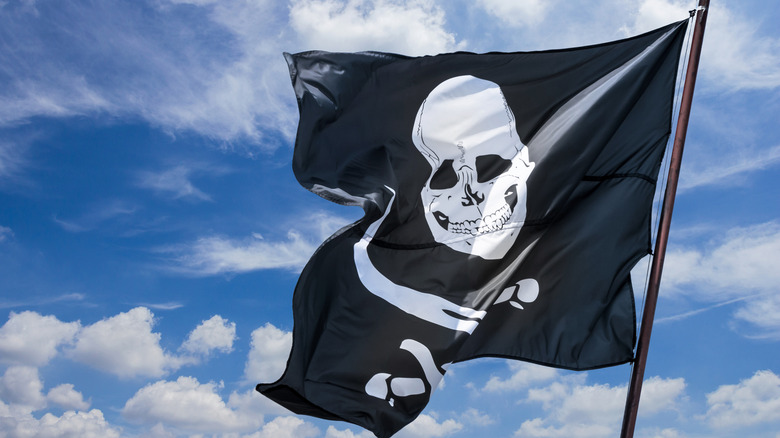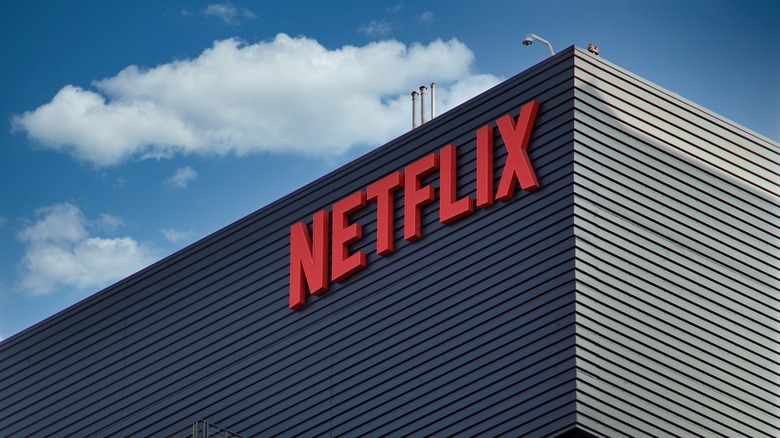Why Streaming Services Are Driving People Back To Pirating
When streaming services were on the rise, people found them valuable for many reasons. It was a cheaper way to watch a bunch of shows and movies on demand, and many decided to cut ties with cable for good in favor of the on-demand technology. Pirating media was also a common practice used to get around hefty cable prices, but streaming services saw many people opting to pay the lower price for convenient access instead. However, as time went on, more companies embraced the streaming service model, fueling market fragmentation at the expense of consumers.
Today, many people are paying close to cable prices for access to the multitude of streaming services available. Shows and movies are spread far and wide across these services as entertainment companies pull the content from competing services to host on their own platforms. Prices are also increasing, which doesn't help matters. Netflix, for example, recently increased the cost of its basic, standard, and premium plans, charging up to $20 for access.
If you add that cost to the price of the handful of other services, there isn't much of a price difference compared to cable, and that may be driving many people back to pirating content. The issue has been growing for years. In 2019, for example, "The Global Internet Phenomenon Report" by Sandvine revealed that BitTorrent traffic had increased after years of stagnation, and it is possible the streaming market's fragmented state was to blame. Things haven't changed much in the years since, as evidenced by a newer report from Sandvine published in 2022 that shows BitTorrent as number one in upstream traffic and number 9 in overall global internet traffic.
Why more people are pirating
Now more than ever, each platform needs to give consumers a reason to subscribe to its services. Companies have found ways to incentivize this by offering exclusives – that is, shows or movies you can't find on any other service. This is the reason many people are now subscribed to a handful of services at once. The arrival of a new streaming service with its own originals presents consumers with seemingly two choices: pay for yet another service or miss out on the original content. You'll also find that when a media company makes its own streaming platform, it will usually pull its shows and movies from all other streaming services, meaning your favorite show may disappear from Netflix, only to reappear on Peacock.
A third option is available, though it's not officially condoned and may come with legal consequences: piracy. Websites like The Pirate Bay make copyrighted content available for anyone to download, assuming there are enough people sharing the files with others. With movies and TV shows increasingly scattered across a broad streaming landscape — and most of the platforms locking the content behind a paywall — many consumers say they've started pirating again to keep their monthly streaming bill from expanding without missing out on exclusives.
Netflix's price hikes and crackdowns fuel backlash
While Netflix has reigned supreme as a streaming giant for years, its recent business decisions have all but precipitated its downfall. Netflix has three tiers in its subscription model: a basic plan, which allows for one screen without high definition; a standard plan with HD and two screens; and a premium plan with 4K and four screens. With the current price increase, these tiers cost $9.99, $15.49, and $19.99 in the U.S., respectively. Many consumers say having to pay $20 for access to 4K streaming is outrageous, making Netflix one of the most expensive streaming services on the market, as reported by Business Insider.
Consumers were already growing weary of paying for multiple streaming services at once, prompting "workarounds" like rotating plans. Now that Netflix has increased its prices (again), many are calling it quits and going back to pirating. As one Reddit user said in response to the price increase, "Imagine my surprise when I opened Netflix today and I get a message asking if I want to pay MORE for UHD?? Back to piracy for me."
Netflix's price hike isn't the only thing earning it backlash, though. Users were already growing disenchanted with the company's exclusive content business model, making the higher cost even more unappealing. Netflix regularly churns out new exclusives, but its quality often leaves much to be desired. Many of these shows are canceled within their first three seasons, often without a finale, leaving fans frustrated. Another Reddit user noted, "For me, it wasn't the price it was the unrelenting commitment to mediocrity and the canceling of good shows without any proper ending. Just feels like they are hard-core committed to making huge numbers of 5/10 shows and 5/10 movies."


